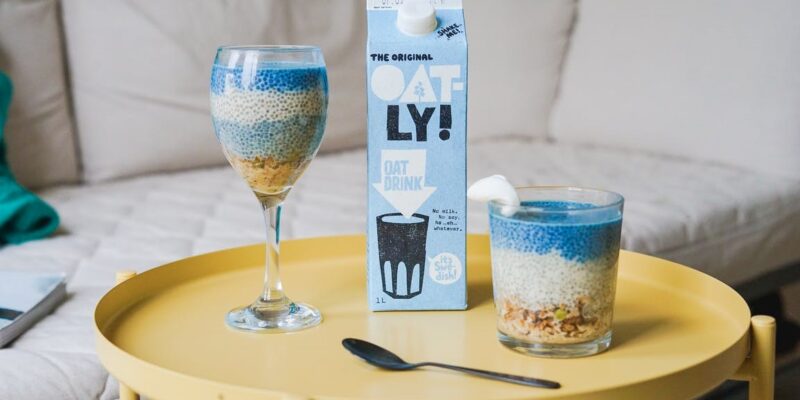On 20 January 2021, the General Court handed down its judgment in the slogan case brought by Oatly AB against the EUIPO’s refusal to register “IT’S LIKE MILK BUT MADE FOR HUMANS” (Case T‑253/20). The General Court sided with Oatly and found that this slogan was sufficiently distinctive to be registered as an EU trademark.
The EUIPO refusal was in line with its settled case law (which is also, for the most part, endorsed by the General Court). It considered that the slogan applied for merely conveyed the simple promotional message that the non-dairy foods and beverages in question were as good as milk but better for the human health.
Oatly argued that milk was commonly considered to be an essential element of the human diet. The General Court agreed and held that, by contradicting this commonly accepted idea, the slogan would “set off a cognitive process”. Emphasizing that in fact milk is not made for humans (but for calves and other babies of mammals) and indeed insinuating that it is not even apt for humans would make the slogan as a whole “easy to remember” and “consequently capable of distinguishing” the goods by their commercial origin.
While this is a nice victory for Oatly, the decision is out of step with the – otherwise –consistent case law on slogans, not only on EU level but also in many EU national systems, where multi-word sequences that convey a meaning that can be seen as laudatory or promotional are normally kept off the register, even if they could at the same time be amusing or surprising or otherwise remarkable.
The earliest slogan judgment of the – then – CFI, rendered in 2001 (T‑138/00), gave rise to hope. It concerned the German slogan DAS PRINZIP DER BEQUEMLICHKEIT (“The Principle of Comfort”), refused for inter alia furniture by the Office. The Court stated that originality was not a requirement for distinctiveness, and that slogans were not to be judged more rigidly than other marks. The appeal by OHIM failed (C‑64/02 P, 2004) and the mark remains registered to this day.
Yet, in 2005, the Court upheld the refusal of LIVE RICHLY (T‑320/03) considering this non-distinctive for financial services, essentially because financial services were there to make you rich. The Court was not impressed by the argument that a “rich life” had little to do with financial wealth and was not what you would normally expect to get from a bank, nor by the significant consumer and media praise that the witty slogan had received upon launch (this is one of this author’s defeats which she has never quite come to terms with).
Ever since, slogans have been in an uphill battle. The 2010 judgment of the Court of Justice “VORSPRUNG DURCH TECHNIK” (C‑398/08 P) raised expectations that the fate would turn, but this was a rather specific case, as the EUIPO was quick to confirm, and nothing changed.
Whether the fact that something is “easy to remember” makes it distinctive is of course the question. This contradicts the EUIPO’s – also consistent – case law in respect of “simple” signs. To date, arguing that simplicity does not take away but adds memorability has never helped. As is true for the case law regarding colours and shapes which allegedly are not remembered and do not help consumers in their orientation in the supermarket, when this is contradicted by empirical studies, this case law rests less on what is memorable or distinctive but on what trademark offices and courts consider deserving of trademark protection (or disruptive for free competition).
The reporting judge on the IT’S LIKE MILK BUT MADE FOR HUMANS case is one of the most recent additions to the members of the General Court. Indeed in 2019 alone, 15 new judges joined the court, making up roughly 30% of its members. And 21 of its members (over 42%) only joined in 2016/17. Maybe this gives rise to hope that some of the encrusted pseudo-truths in European trademark law (rules of thumb that replace facts and practically cannot be disproven – of which there are many!) can be challenged in the future?
_____________________________
To make sure you do not miss out on regular updates from the Kluwer Trademark Blog, please subscribe here.




This reminds me of a trademark seen in the US: you can’t believe it’s not butter
Nothing special written like that, but imagine butter being in huge bold font.
This decision is difficult for me to understand, because the EU CJ ruled on 14 June 2017 that only dairy products (ie from cow) may be called milk, butter, etc. Thus, it should not be allowed to use the above slogan.
In any case, the first descriptive part “it’s like milk” does not deserve any protection.
The CJEU judgment referred to is C-422/16. I would note that whether the term “milk” can be used (as part of this slogan) is a regulatory question that is not pre-empted by this GC judgment, which only considered distinctiveness as in registrability as a trademark. Note further that the Harmonised Database (recommended terms for the specification of trademarks in the EU) contains numerous plant-based beverages called “milk” (“almond milk”, “hemp milk”, “rice milk” etc.), all in class 29, which is odd considering that such products don’t exist in the EU – or cannot lawfully be called that. One should think that trademark specifications should not contain terms that are against the law… Finally – from a regulatory perspective, “milk” is not only reserved for products deriving from cows – the term “milk” and other milk product names are reserved for “animal products” as defined in article 78, paragraph 2, and annex VII, part III, of Regulation No. 1308/2013 on agricultural products’ markets.